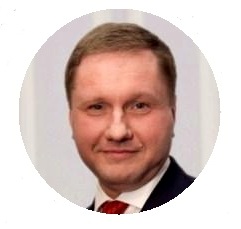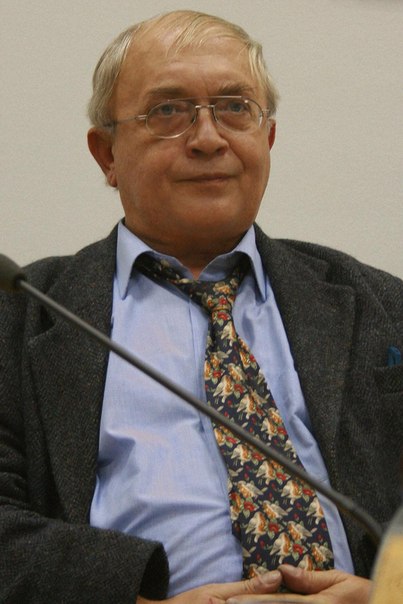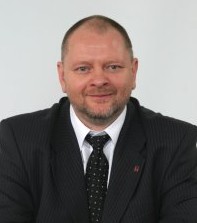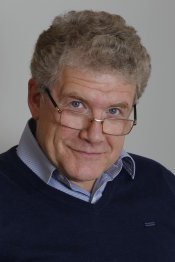“Society of Political Consumers”: We want a change, but not by our own effort
05/03/2012Published 03.05.2012
Results of nationwide survey in Russia, commissioned by the Service Sreda (field work: FOM-Penta, 1500 respondents, 2012) . Respondents were asked:
Do you agree with the following statement: “The country’s political system is in need of serious changes”
- 1. Do you agree with the following statement: “I want the political system to stay as it is now”
- 2. Do you agree with the following statement: “I am willing to participate in the political opposition”
- 3. Do you agree with the following statement: “I am willing to participate in civil service, grassroots campaigns, and volunteer groups”
Most of the Russians polled (69%) believe that the country’s political system is in need of serious changed, and only a fifth (19%) of those polled want the political system to remain as it is. What is interesting, even with a high readiness for change, only 3% and 6% of those polled are willing to personally participate in protests and civil action, according to the results of the Russia-wide poll.
CHANGE, WE EXPECT CHANGE!
The level of expectation for political change among Russians is very high; this is expressed by two-thirds of Russians. Moreover, the most active proponents of change in the political system were those respondents whose trust in the Russian Orthodox Church has recently decreased and whose level of trust in Patriarch Kirill is also low. Also, the more active proponents of change are the respondents with higher education (79%), managers (95%) and supporters of Mikhail Prokhorov (87%). It is less common for Muslims to express support for change. Only 46% of the representatives of Islam consider political changes in the country to be a need. Income level does not particularly affect the readiness for political change. The inhabitants of towns and cities are more in favor of change, and the villagers are mostly against. The views of Muscovites do not differ from Russia as a whole.
| Those more likely to say that the country’s political system is in need of serious changes. | Those more likely to find the question too difficult to answer | Those more likely to say that the country’s political system is not in need of serious changes |
| Those having received a higher education | Pensioners | Those with lower levels of education |
| Leaders | Those who are able to buy themselves a home or apartment | Those who work in artistic and cultural spheres |
| Those who work in production | Villiagers | Those who live in the Southern and Northern Caucus federal districts |
| Agnostics | Muslims | |
| Orthodox Christians not associated with the Russian Orthodox Church | Those who trust Vladimir Putin | |
|
Mikhail Pokhorov Supporters |
||
| Those who do not trust Patriarch Kirill | ||
| Those whose trust in the Russian Orthodox Church has decreased | ||
| Those who are ready to leave Russia for another country |
LEAVE THINGS AS THEY ARE!
Against the background of a high level of trust in government (61%), only every fifth Russian would want politics to remain, “as it is now.” Supporters of leaving the political situation without change are mostly civil servants (40%), workers in the banking sector (30%), Muslims (32%) and those who trust Vladimir Putin (27%).
|
Those more likely to would want the government to remain how it is |
Those who found the question too difficult to answer |
Those more likely to not want the government to remain how it is. |
|
Servants |
The village population |
Men |
|
Civil Servants |
Those who are able to buy themselves an apartment or house |
Workers in production |
|
Bankers or financial workers |
Farmers |
Those without children |
|
Those with many children |
|
Those who regularly use the internet |
|
Muslims |
|
|
|
Non-Orthodox Christians |
|
|
|
Those who trust Vladimir Putin |
|
|
|
Non-Russians |
|
|
WILLINGNESS FOR PROTESTING AND CIVIL ACTION
Despite a request from an overwhelming majority for political change in the country, only 3% of respondents are willing to take part in the opposition, and only 6% of Russians agreed with the statement ” I am willing to participate in civil service, grassroots campaigns, and volunteer groups,” meaning real, rather than just a declaration of, civic participation. Is this really the “political consumer’s position” of the population? – With this question, “Sreda” turned to the experts.
|
Possible Participants in Political Opposition Actions |
Those not likely to participate in Political Opposition Actions |
|
Students |
Those who live in the Southern and Northern Caucasus Federal Districts |
|
Scientists |
Muslims |
|
Supporters of Sergey Mironov |
Those who trust Vladimir Putin |
|
Supporters of Mikhail Prokhorov |
Villiagers |
|
Possible Participants in civil work |
Those not likely to participate in civil work |
|
Leaders |
Those who live in the Southern and Northern Caucasus Federal Districts |
|
Scientists |
Those older than 65 |
|
Those with above average wages |
Pensioners |
|
Those who live in Russia’s largest cities (except Moscow) |
Vladimir Putin Supporters |
|
Agnostics |
Those with below average levels of education |
|
Those who participate in charity |
|
Фото: © Copyright Василий Максимов, http://ma–zaika.ru, http://www.novayagazeta.ru/
Experts’ comments to the results of the survey
Konstantin Eggert , an international journalist, member of the Royal Institute of International Relations, a columnist for the radio station “Kommersant FM»
Clearly more active citizens than 10 years ago
The position of the respondents does not surprise me. Active social and political activities have always been the destiny of minorities. If we talk about political change, then now people do not see:
a) the circumstances in which these changes might take place across the country (in the near future there should be no elections at the federal level);
b) The specific forces and leaders who could articulate the appropriate agenda.
These forces and leaders should declare themselves in 2015, when elections will be held for the mayor of Moscow. I think at that point a request for change will be even sharper.
As for volunteer and charitable activities, as I understand it, the process of getting people involved is generally more durable because it is associated with a profound transformation of the national thinking, attitude to the country, and civic feelings. Nevertheless, there are definitely more of these people than 10 years ago.
Andrew Ignatieff , sociologist, professor at the Russian State Humanitarian University, Ph.D.
“Innovators” do not see any real way to defeat “archaists” or have a leader, who would be able to organize them
I think there are several reasons: first, ‘innovators’, that is to say, proponents of change, do not see any real way to defeat “archaists” or have a leader who would be able to organize and lead appropriate political movement. Without this, the changes will remain virtual subjects of desire and will not be able to become realized public actions.
Another reason for this paradox is the monopolization of public functions by the media, which generates a massive and stable enough illusion by publicly showing the implementation of alleged changes. That is, via channels of mass media, they express the what people want to see. This has, in fact, happened in the Bolotnoy, the Sakharov, and other places of mass political festivals, a sort of peculiar, and few have perceived the inadequacy of this solution.
Finally, as for the “innovators” and “archaists”, to see a stereotypical contradictory attitude towards change well marked by a difference in both is a rare phenomenon. It will sooner come for people to talk less about the confrontation between the two close knit “camps” and more about their various attitudes towards the current regime.
Sergey Filatov
Given that the country is at an early stage of the color revolution, 3% and 6% is not insignificant. Appetite comes with eating.
The results of the poll show that the nation is ready to move to a political renewal. Given that the country is at an early stage of a color revolution, and that the Russian people are not prone to any form of grass roots or civil action, and have not acquired any skills or habits of this kind, 3% and 6% is not at all insignificant. Appetite comes with eating.
The poll also refutes a few harmful myths. It is not the “creative class,” but people with higher edication, i.e. intellectuals, who are the main protestors. Moscow is not at all unique, but it fact the city population of Russia is ready for foundational change.
Did you have a question about Prokhorov’s supporters or about who were Yavlinski’s supporters? That is also an important part of society.
Michael Tokarev , coordinator of inter-regional social movement “Prokhorov Volunteers “
The broad masses do not know that active citizen positions in our country have not died, but have always been.
If we talk about the essence of the survey, we can state the following:
1. The last 17-20 years can be called the stagnant years, almost lost to the country. The reasons for this are the economic crises of 1998 and 2008. Other than economic factors, the reason for today’s political crisis is a lack of common ideas, purpose, and strategy. Is there a political crisis? Of course. This can be seen in the poll results in which 68% are waiting for change in policy.
The appearance of new leaders. Usually it is believed that Russians “harness for a long time, but quickly go.” 3-6% of people, who desire to take part in changes, are the critical figure. Sometime ago, Hitler also began with 5%. Even great deals of leaders, mostly liberal who desire to cardinally change the country’s situation, are joining the wave of protests. But a completely different question is, which way should we change? To the right or left? According to the European, American, or Chinese model?
3. Social movements have existed for a while. As it turns out, the broad masses do not know that active social positions in our country have not died, but have always been, as if not pressured by local authorities. Take for example Evegeniy Royzman’s “Country without narcotics” movement. It has existed for more than 10 years, but people did not find out about it until a few years ago when a few drug addicts were taken to court. The paradox is that scandals bring more notoriety than real problems!
4. There will not be a revolution. Our nation’s memory is quite good; those at the “genius level” remember the results of revolution. Therefore during the time of the Gang of Eight, people made a stand for the protection of the current power. Today’s “orangeism” was thought up exclusively by the “United Russia” party to remind the people of the horrors of civil war. The nation is not ready for war, but it is becoming less patient in enduring the current situation.
5. The judicial system. Thoughtful people understand that when there are almost correct laws from the European point of view (influenced and entered into the WTO), they are not implemented in the country at all levels. Obviously, it is necessary to break the dependence of the judiciary from the Chairmen of courts, the President, corrupt laws, etc.
Hence, a small percentage of people want to actively change the system because people do not understand how they personally can influence it. However, for the past several years, there have been “loud” cases that are supported by the public. People are beginning to realize that the it is impossible to impact the judicial system by meetings in the court. The only remaining legal way to penetrate the government at all levels is the imposition of legislative initiatives. And this can only be done by social movements and new parties (because the older groups have not been able to solve these problems for more than ten years).
Mark Urnov , professor, scientific director of the Faculty of Applied Political Science, Head of the Department of political behavior, leading researcher at the Laboratory of Political Studies NIU “Higher School of Economics”
It seems, in truth, the renewed middle class is beginning to realize how much things are worth
Thank you for the interesting and much needed information. Most of the positions agree with my views about the mood in society, including the low willingness to participate in politics.
The only thing that for me was new and exciting was the positive correlation between support of the idea of political cange and the level of education. In my research, that kind of correlation was seen in the end of the 1980s, even before the reforms. And in the first half of the 2000s, the situation seemed to be the opposite; then people with higher levels of education (representitives of the soviet “middle class”) demonstrated more conservatism than respondents with less education. According to the answers of the other questions, it became clear that this explains the negative effect of the reforms; people considered themselves to be the salt of the earth, the examples, but turned out to be the group which sharply lost social status – both according to income and the appeal of their professions.






